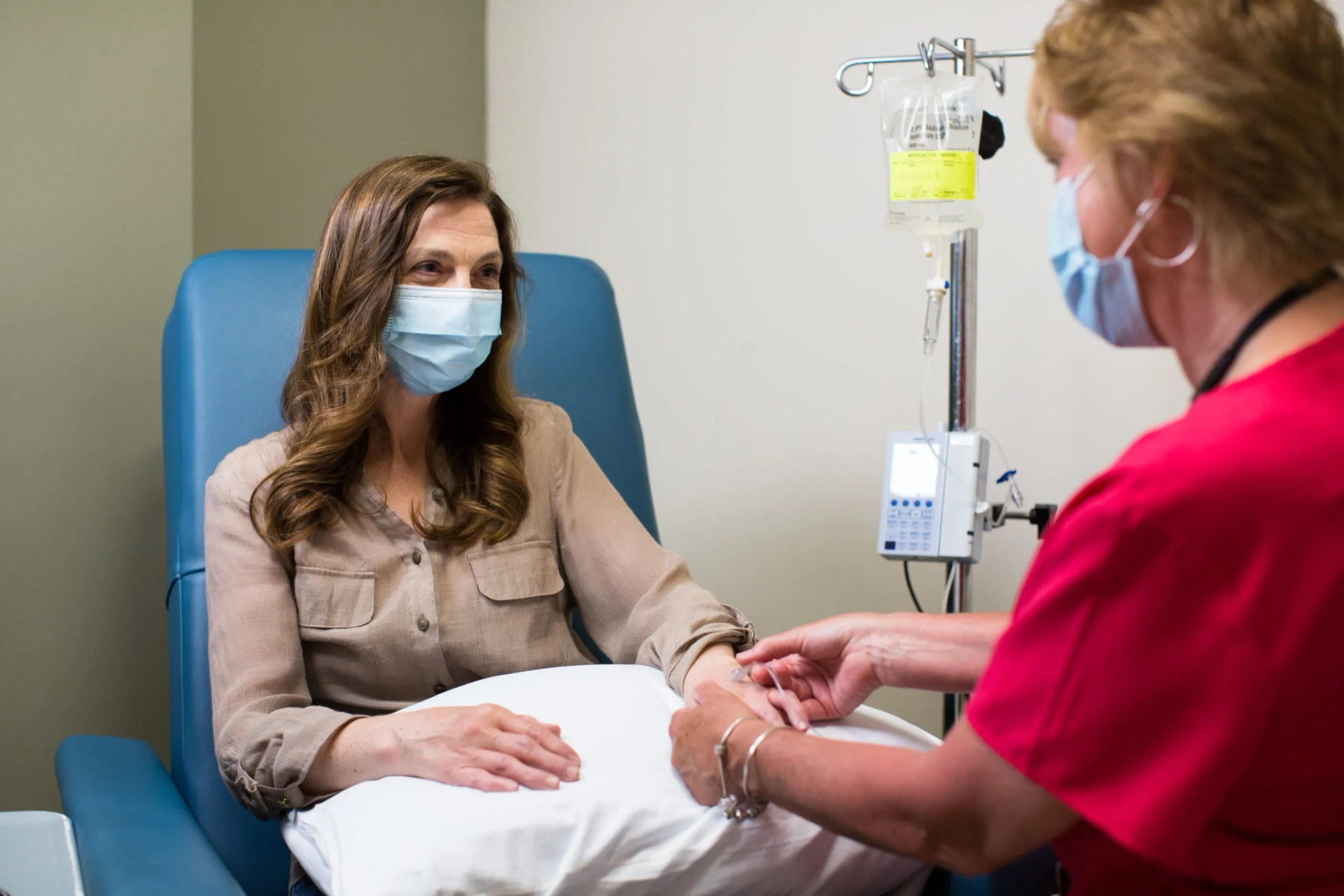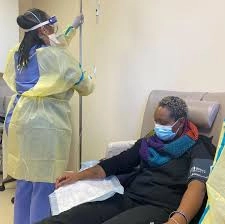Atypical Hemolytic Uremic Infusion Therapy
Atypical Hemolytic Uremic Syndrome (aHUS) is a rare illness that runs in families. It harms blood cells and kidneys. The body's defense system gets too active and attacks itself. People with aHUS may feel tired, bruise easily, and pee less. Doctors use special drugs to calm the body's overactive defenses. Without help, aHUS can make the kidneys stop working.

Symptoms

Symptoms
Symptoms of Atypical Hemolytic Uremic Syndrome (aHUS) include:
- Tiredness
- Pale skin
- Easy bruising or bleeding
- Confusion
- Less peeing
- Swelling (edema)
- High blood pressure
- Stomach pain
- Nausea or throwing up
- Shortness of breath
These signs can come on suddenly or develop slowly. Some people might have only a few symptoms. If you notice these problems, especially together, it's important to see a doctor quickly.

Treatment Options
Treatment options for Atypical Hemolytic Uremic Syndrome (aHUS) include:
Complement inhibitors:
- Eculizumab (Soliris)
- Ravulizumab (Ultomiris)
Plasma therapy:
- Plasma exchange
- Plasma infusion
Kidney support:
- Dialysis (temporary or long-term)
Kidney transplant:
- For severe cases with permanent kidney damage
Blood transfusions:
- To address severe anemia
Blood pressure medications:
- To manage hypertension
Supportive care:
- Fluids and electrolyte management
- Nutritional support
Genetic counseling:
- For families with inherited forms of aHUS
The main treatment goal is to control the overactive complement system and prevent organ damage. Complement inhibitors are now the primary treatment, often replacing plasma therapy as the first-line option.

Living With
Living with aHUS involves regular medical care, including doctor visits and treatments to control the condition. Patients focus on maintaining overall health through diet, exercise, and infection prevention. They must be alert to potential flare-ups and have an action plan. Lifestyle adjustments are often necessary, including work or school accommodations. Mental health support can help cope with the challenges of a chronic illness. While aHUS requires ongoing management, many patients can lead fulfilling lives with proper care and support. Staying informed about the condition and new treatments is important for effective long-term management.
Meet our Infusion Specialists
Jalal Thwainey M.D.
Medical Director
Emilie Wojcik, N.P.
Director of Clinical Services
For Provider
Simplify patient referrals and offer advanced treatment options with our infusion partnership program.
For Patient
There may be a better way to manage your condition – explore infusion therapy.





